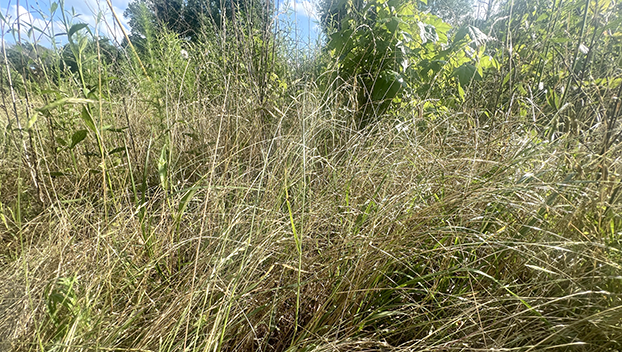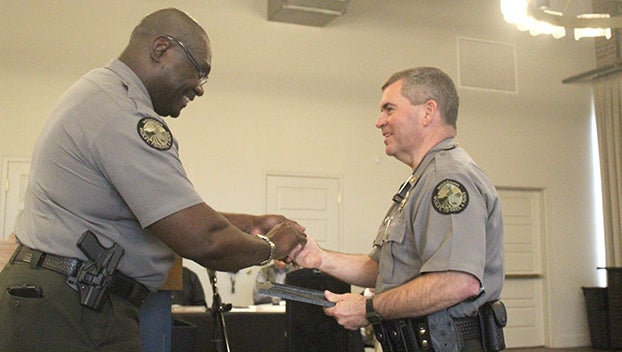Working for wildlife: Exterminating bad grasses
Published 8:00 am Thursday, May 16, 2024

- Not all grass is good especially when it comes to managing early successional habitat for turkeys, deer and quail. Rye, bermuda and bahaia grasses are all non-native pasture grasses which need to be addressed before promoting native vegetation in old field habitats. (Hunter Cloud | The Daily Leader)
BROOKHAVEN — May is one of the best times to attack bad grasses according to MDWFP private land assistant coordinator Pierce Young. Old pastures are one common landscape feature in Southwest Mississippi and can be transformed to benefit wildlife.
MDWFP’s private land visits are an effective tool to draw up a plan to address habitat work. One of the first things a biologist will tell managers is to get rid of the non-native grasses.
This is needed before work to improve old field habitat for turkeys, quail and deer can ever begin. Carpets of grass keep native plants suppressed. Native plants are in the seed bank and can remain dormant for 75 plus years. These plants will be released as the non-native grass is removed.
According to MDWFP, unless the ground was cultivated to control weeds you typically do not have to plant any native seeds after the pasture grasses are controlled.
Fighting bad grass
Multiple different types of non-native grasses can be mixed together in fields and there is not one correct herbicide for all of the grasses.
Young recommends using a non-selective herbicide such as glyphosate to kill all of the existing plants at one time. This allows for the native seeds to respond first.
Bahaia, bermuda and other warm season perennial grasses are the more common non-native grasses found in Mississippi. These can be controlled in the summer with a herbicide application.
Young said his recommendation is 2 quarts per acre of Glyphosate in May/June and another higher dose of 4 quarts per acre in July/August. Like any herbicide application, read the label before use.
Do not mow
One of the worst ways to manage habitat is to mow. Especially, when mowing occurs during the turkey’s nesting season and fawning season for deer. Young wrote that a study conducted in South Dakota found 28 percent of all turkey nests were destroyed by haying or mowing practices.
In the same study, haying was found to be the primary cause of hen mortality. Mississippi State University research found hen survival is the top metric in influencing populations.
Schedule a site visit with MDWFP Private Lands to start your journey in working for wildlife.





